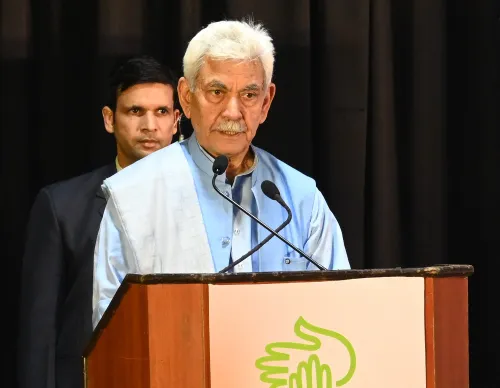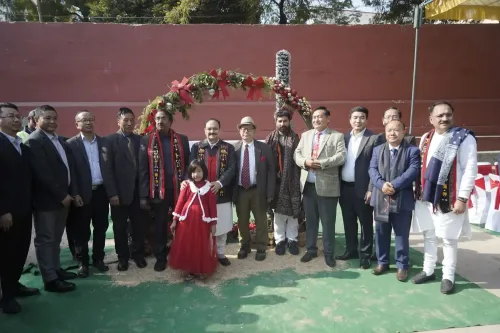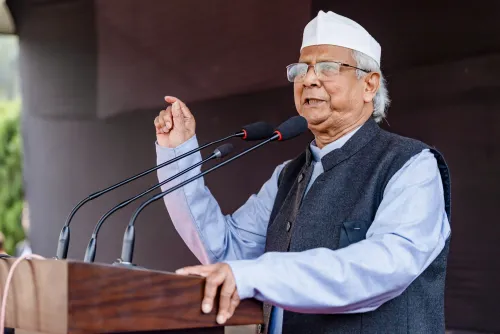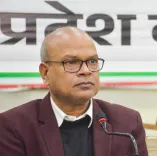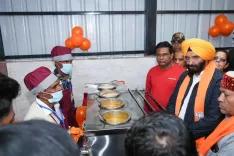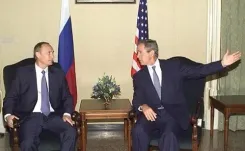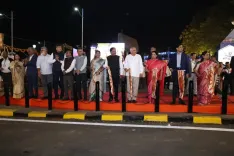Did Kejriwal Just Slam the Centre Over Cotton Duty Rollback?
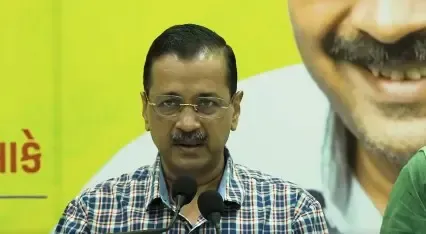
Synopsis
Key Takeaways
- Kejriwal's strong stance against the central government
- Concerns over falling cotton prices
- Demands for a Minimum Support Price
- Link to international trade relations
- Impact on diamond workers in Surat
Ahmedabad, Sep 7 (NationPress) Aam Aadmi Party (AAP) national convenor Arvind Kejriwal on Sunday criticized the central government for “betraying India’s farmers” by eliminating the 11 percent import duty on American cotton. He warned that this decision could lead to a collapse in domestic prices, dropping below Rs 900, thereby pushing farmers into debt and despair.
After the postponement of his scheduled Kisan Mahapanchayat in Chotila due to waterlogging, Kejriwal claimed that Prime Minister Narendra Modi was “sacrificing farmers to please Trump,” while disregarding the crisis affecting numerous diamond workers in Surat, who are struggling under a 50 percent US tariff.
He called for the immediate reinstatement of the 11 percent duty on imported cotton and the establishment of a Minimum Support Price (MSP) of Rs 2,100 per 20 kg, along with guaranteed procurement.
“Our farmers planted cotton in June-July after borrowing money for seeds, fertilizers, and labor. Their harvest is expected in October-November, but the government's decision has undermined their efforts. As American cotton becomes cheaper, textile mills are already placing large orders from the US. What will happen to our farmers' harvest?” Kejriwal questioned.
He recalled that in 2013, cotton prices in Gujarat were between Rs 1,500-Rs 1,700 per 20 kg, which Modi had labeled as “too low”, demanding Rs 2,500. “Now, eleven years later, farmers can't even secure Rs 1,200. With rising input costs and falling prices, once US cotton floods the market, they may receive barely Rs 900. American farmers will prosper while ours are devastated,” he stated.
Linking the removal of the duty to international relations, the AAP leader accused PM Modi of succumbing to pressure from Trump.
Kejriwal also emphasized the challenges faced by diamond workers in Surat, who, according to him, are “struggling to pay school fees or secure two meals a day” due to Trump's 50 percent tariff on polished diamonds.
“Other nations retaliated against Trump's tariffs, and he backed down. Why is India silent? Why can't Modi assert India's position? We are a nation of 140 crore with a vast consumer market. Impose a 75 percent or even 100 percent tariff on American goods — Trump will relent. That’s how the world negotiates with him,” he suggested.
AAP presented four main demands to the Centre: restoring the 11 percent duty on cotton, setting the MSP at Rs 2,100 per 20 kg, guaranteed procurement, and subsidies on inputs like seeds and fertilizers.
The AAP leader also criticized Congress for its “silence” on this matter, stating, “Congress has nothing to do with farmers or workers. They are preoccupied with serving the BJP’s interests.”



